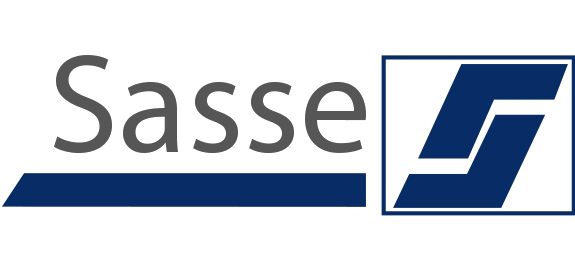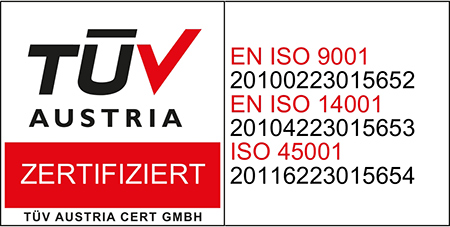FM is the true success story of “Design Thinking”
“Design thinking” is currently the talk of the town, where disruptive changes are being planned and implemented.
The Hasso-Plattner Institute, one of the pacesetters in this new approach, defines it as follows: “Design thinking is a systematic approach to complex problems from all areas of life. In contrast to many approaches in science and practice, which approach tasks from the perspective of technical solvability, the focus here is on people. Design thinking makes it possible to overcome traditional and outdated models of thinking, learning, and working and to solve complex problems creatively. It creates the culture in organisations that is needed to master the digital transformation.” Looking at the individual aspects of this definition, it becomes crystal clear: facilities management and design thinking are made for each other, indeed they are mutually dependent where they come into contact with each other.
- The systematic approach is deeply anchored in the DNA of facilities management. Process descriptions, flow charts, checklists: they exist in our industry not only on paper. They are the non-negotiable basis for ensuring that we provide our services in a site-oriented, economical and verifiable manner. Only from the systematic approach does the reproducibility arise that we need to meet the highest standards – regardless of whether we set them ourselves or whether our clients demand them.
- Complex problems have been part of everyday life in FM since the very beginning. Even the simplest cleaning tasks have always been integrated into operational processes. They must not only satisfy the customer themself, but also their customers, employees or business partners. The example of an airport toilet makes this visible: airport, passengers, airlines, gastronomy, trade – our work serves an entire community with its different interests. Decades of experience with this topic hence give our industry a knowledge and application edge in this aspect.
- “People in focus” is a key topic of every facilities management. This is as technical solvability refers exclusively to facilities and installations as well as compliance with all relevant regulations and laws. The benefit of FM, however, is reflected where people are (or are allowed to be) more satisfied, happier, safer, and more productive because of our services than they would be without the investment in the added value of a site, which cannot be created without FM.
- This factor also affects the people who provide FM services in equal measure. Those who degrade them to mere vicarious agents of service specifications deprive themselves of the numerous opportunities for development and improvement that exist individually in everyone. Particularly in an industry that still must contend with prejudices as a workplace and struggles to retain good people in the long term, a great opportunity for employer attractiveness lies in breaking down and transforming traditional and outdated models of thinking, learning, and working with the help of the practical experience of our colleagues and employees. Often enough, the teams on the ground know only too well how we can perform more efficiently and make our customers happy in the long run.
- The distinction between “problem space” (“desirability”) and “solution space” (“feasibility”) in design thinking, as well as building bridges between the two spaces, are part of FM’s traditional procedures for every assignment. This principle applies to all areas of life and fields of work in which we operate, however different they may be. As a cross-sectional service provider our sector is thus predestined to propose and implement viable and economical solutions.
- To solve complex problems creatively, we have been using the know-how of colleagues and employees who have spent the first part of their professional career outside of facilities management for quite some time. Simultaneously, we are forced to do so by the fact that there is no specific FM training profession so far. We are therefore dependent on career changers, especially in the technical professions. However, the diversity of our tasks and the broad spectrum of our clients give us the opportunity to motivate these employees in particular: They have more variety and find recognition as sought-after specialists. In addition, the usually manageable units offer a much greater opportunity to take on responsibility.
- From a FM’s point of view, the fact that design thinking creates the culture in organisations to innovate and change is only one part of the picture. Only an already existing culture can provide reliable foundations on which new processes can be thought and shaped. Sustainability is one of the most important values. Contemporary, progressive FM stands for the careful use of resources, consideration for the needs of people and the environment, and the preservation of the value of existing and future investments. This coordinate system marks the space for design thinking “inspired by FM”.
- There is no question that digital transformation is a driving force, if not the decisive one. Sasse Group already took on this task in the middle of the last decade and has since taken many steps to expand digital tools and processes in all areas and at all levels. One the one hand, this is, like the entire FM, a great challenge and primarily due to the complexity of our tasks and the diversification of our organisation. On the other hand, it is precisely in these structures that we have the optimal prerequisite for implementing digitalisation holistically and not in slices. The aforementioned “at all levels” has a key role to play here, because who may and should use digital means does not depend on hierarchy or budgetary responsibility or other traditional legitimations. There is only one “all or nothing” here.
What results from the interaction of the factors mentioned? First of all, the realisation that good FM has already applied the principle of “design thinking” in the past without knowing or using the term. This is an advantage for us, who are now invited to accompany our clients and partners in implementing this principle for themselves. We can share our vast experience in a know-how transfer and management service for the “thinking” facilities, so to speak.
But this is only the foundation on which a newly understood and oriented FM can and will develop. Wherever we already meet our clients at eye level today, joint working will intensify: Facilities management as a task and the service providers commissioned with it will become even more integrated partners in the development, planning, and implementation of projects than before. Our specialised knowledge as a service provider will provide clients with the decisive technical and time input to be able to act quickly and flexibly.
The safety and hygiene concepts during the current pandemic will serve as a blueprint: A factor far removed from the core business decides from one day to the next the “how” and “when” of the presence on the market and the continuation of the business. In numerous cases, we have been able to contribute our expertise in a field that is overshadowed by other services in the conventional view of FM. The sufficient availability and existing procurement channels for disinfectants alone put us in a position here where we designed new infrastructure and processes together with the customers. Textbook process design.
The next steps to becoming an active partner in Design Thinking lead us down two parallel paths. One path leads inwards. There, we will use digitalisation to improve our structures and processes and make them more transparent. This will create more space for the people who work for us, giving them more time and energy for research, analysis, and communication. On the second path, we then bring this additional added value to our clients to enrich and accelerate their development.
Both are excellent for deepening existing ties and creating new ones. This also applies to both our clients and our own organisation. The higher our quality standards are and the more aspects our value proposition encompasses, the more important it is that we attract the best talent on a permanent basis.
This changes not least the form and type of leadership for the whole company. The upcoming generational change at the head of Sasse Group will succeed not least because “design thinking” has always been our form of corporate development. Just as sustainable thinking and acting corresponds to our understanding of holistic service. In an ongoing creative process, we have moved to where we are no longer the minute you read this sentence. We do not need to reinvent the so-called “iterative process” as a carrier medium of “design thinking”: It has been inherent in the system at FM by Sasse since day one. And familiar to all the people in our company who deliver this FM and adapt it to reality again and again – just as it is to our clients, who see themselves in good hands with us beyond efficiency and profitability.



